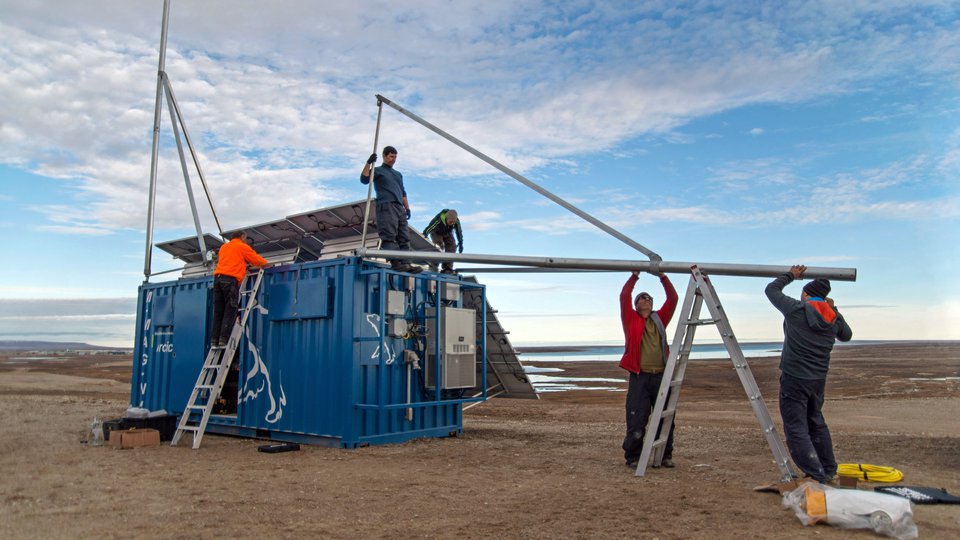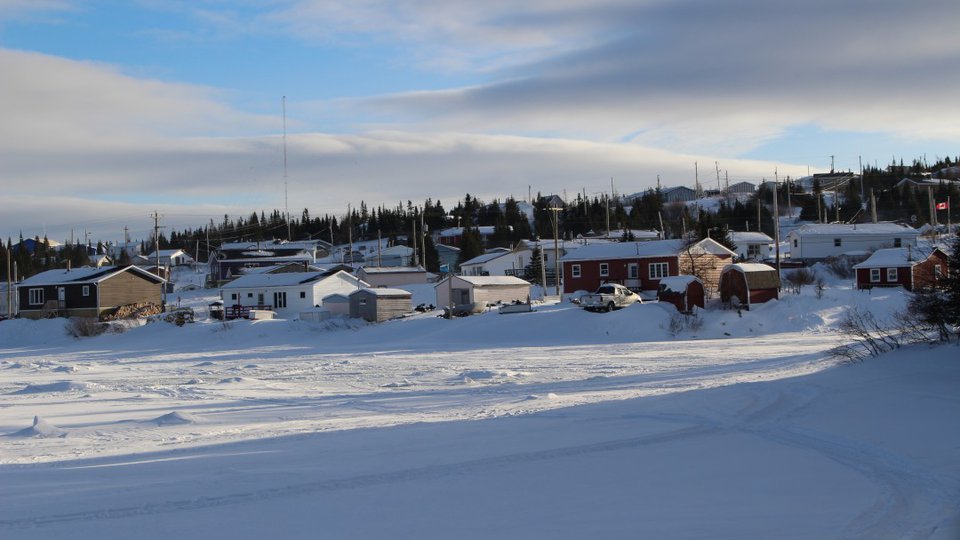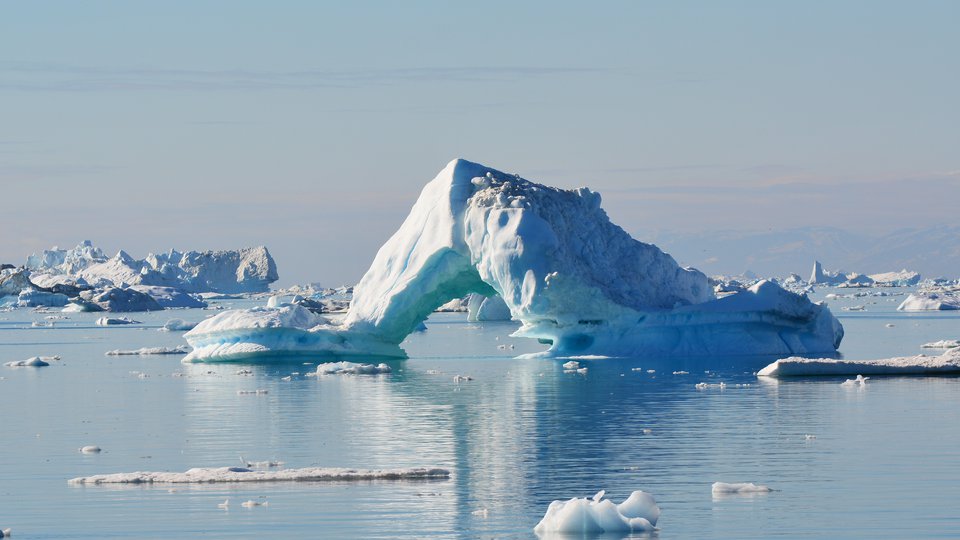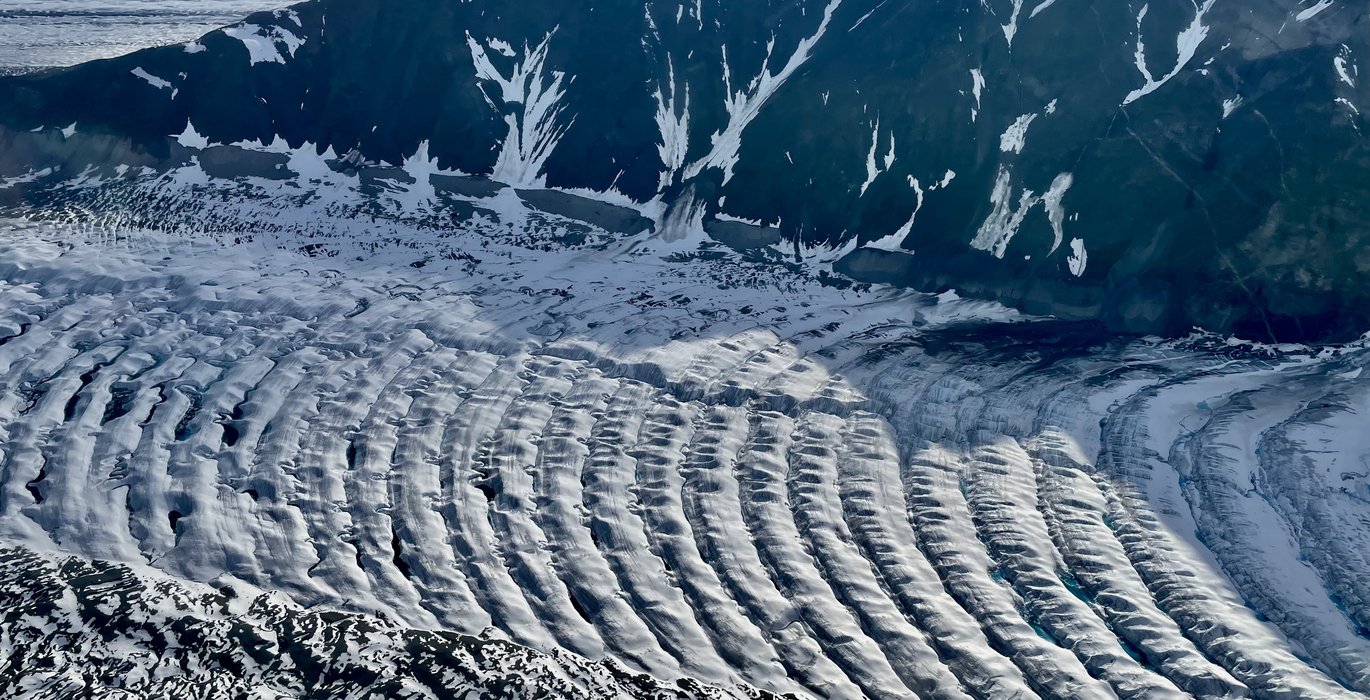
The sounds of climate change don’t always come from underwater hydrophones. Sometimes they are the sounds of walking on a glacier, or the sounds of someone sharing Traditional Ecological Knowledge.
Theresa Soley is the force behind the Ice and Fire podcast which focuses on "listening to climate change in Alaska through place-based narrative.” Soley is the podcast’s creator, as well as its director and host, and the first season includes seven episodes focusing on everything from glacier research methods, to risk mitigation during glacier travel, to Traditional Ecological Knowledge. She incorporates quantitative data along with Traditional Ecological Knowledge and place-based storytelling.
Soley was working on her master’s degree in One Health at the University of Alaska, Fairbanks, when the COVID-19 pandemic hit, causing her classes to go virtual. Her major focused on thinking about global ecosystems and health holistically, incorporating both human and ecosystem health into one. Eager to interact beyond the screens of virtual learning, Soley set out to find a way to incorporate a field element into her virtual studies, and she thought conducting interviews and creating a podcast was a great way to go about it. She began fundraising and soon obtained a seed grant, followed by additional funding that enabled her to produce the first season.
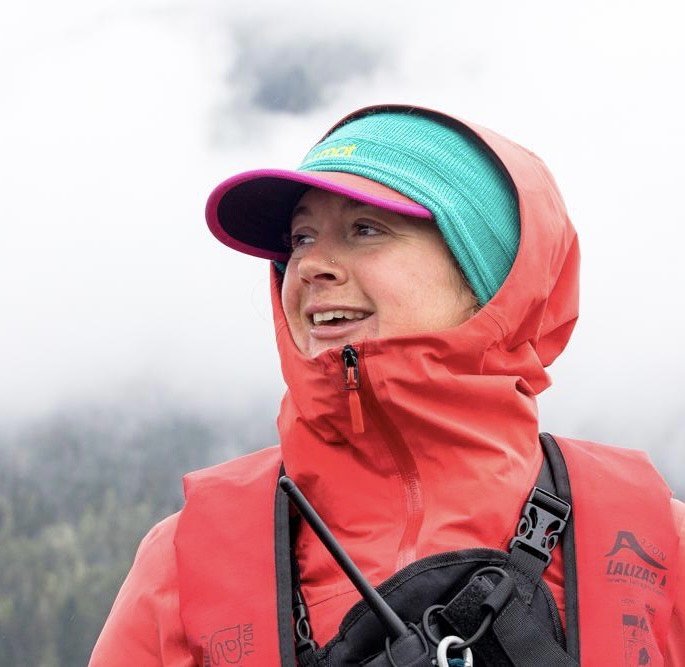
Theresa Soley is the force behind the Ice and Fire podcast which focuses on "listening to climate change in Alaska through place-based narrative. (Photo: Theresa Soley)
Inspired by the 2012 documentary Chasing Ice, which chronicled rapidly melting glaciers around the globe with captivating visuals, Soley sought to find a way to share a climate change message with a different format: audio. “I figured that the sounds of changing glaciers could be just as captivating as the visuals,” Soley says.
When asked which episode is her favorite, Soley quickly points to episode number three, “Glacier walkers.” In the episode, Soley talks with Judy Ramos in Lingít Aaní, and Ramos shares stories about the history of glacier travel in the region, sharing that people in the area traditionally were called “glacier walkers.” She also discusses the Spirit of the Glacier.
The episode focuses on the history and challenges of glacier travel, and how historically Indigenous groups in the area used glaciers like highways as they crossed them traveling from villages in the interior to those on the coast to trade and visit. Ramos also shares how their songs and dances reflect the journey across the glacier and down to the coast. The episode delves into native oral history, as well as archaeological findings about how people traveled across Alaskan glaciers on foot. Soley incorporates a story about how scientists analyzed the body of a person found in the area who they believe was walking across the glacier on the way to the coast. They estimated the body to be hundreds of years old, and found he mostly ate marine-based food.
The episode also discusses other types of glacier travel, like mountaineering. Soley shares the story of Walter Harper, an Athabascan man who became the first person to summit Denali in 1913 as he guided the Karstens-Stuck Expedition.
“I am excited about this episode for its unique content involving Traditional Ecological Knowledge and its application to the history of glacier travel combined with climate change,” she says.
Producing a podcast is a time-intensive endeavor, and Soley says the most surprising part of creating her podcast has been the extensive time commitment involved. With every episode, she spends time planning, researching, often venturing out into the field, coordinating and conducting interviews, before she finds herself back on her computer writing, editing, mixing sound, and producing.
“I hope that people realize that climate change is occurring and can also be heard in real-time, and that climate change is a global full-sensory, full-system challenge,” Soley says.
Currently, Soley is working on fundraising and grant writing to be able to put together a second season. She has been spending months submitting applications for funding, and she is also considering a number of collaborations, partnerships, and other funding sources. She is planning a second season that will build upon the first season, inspiring people to go deeper and inspire change.
“While the first season of the podcast really defines climate change in a multi-dimensional way, and captures as well as shares these changes using sound, the second season is intended to be more solutions-based,” Soley says.
Check out more episodes from Ice and Fire here:
